Kamla's Fake Budget: A Psyop on the People of Trinidad and Tobago.
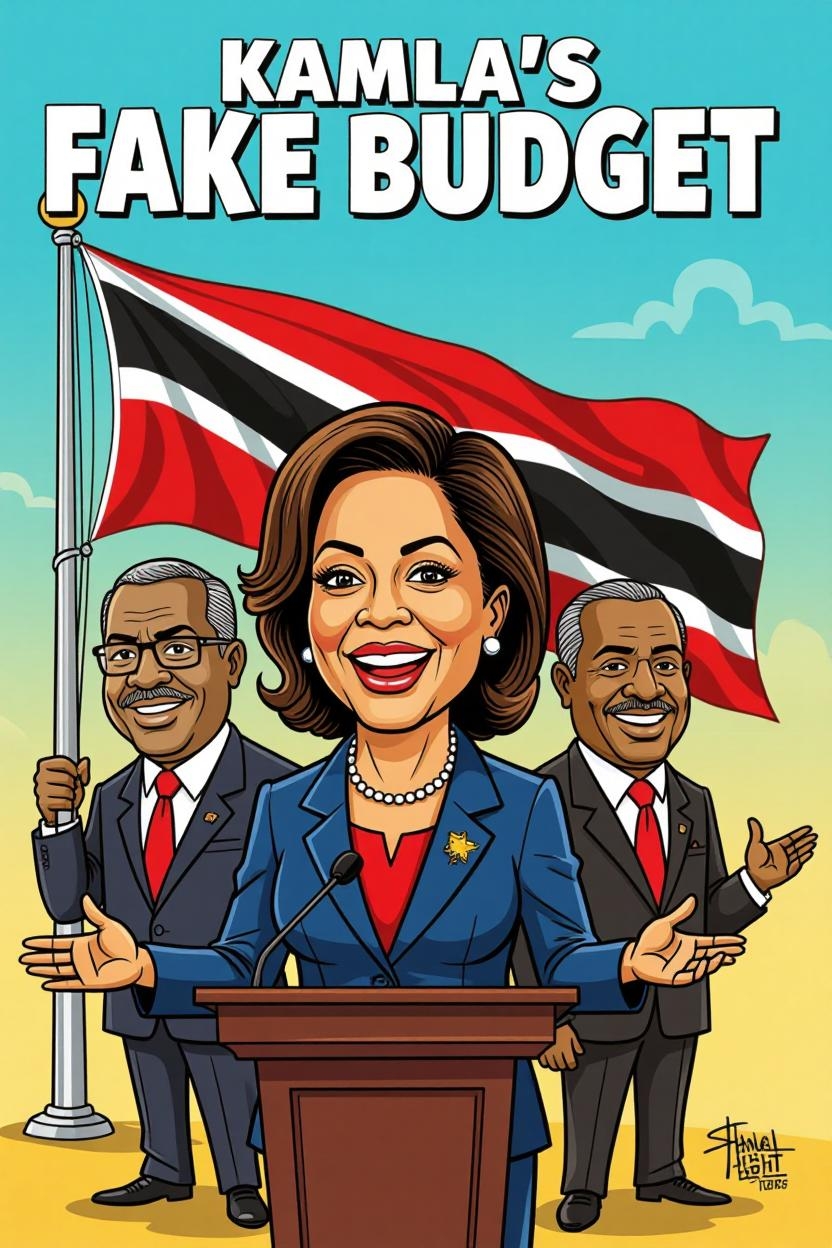
In the sweltering heat of Trinidad and Tobago's political arena, Kamla Persad-Bissessar's United National Congress (UNC) has unveiled what they tout as a "people's budget"—a blueprint for economic revival, social equity, and national pride. But let's cut through the rhetoric: this isn't a budget; it's a psyop. A carefully curated illusion designed to lull the people of T&T into complacency while ignoring the elephant—or rather, the aircraft carrier—in the room: escalating US military activity in our region. This piece zeros in on that glaring omission, the one that could unravel everything if tensions boil over. We're not here to dissect the fine print of tax hikes or subsidy cuts (plenty of those lurk in the shadows, ready to squeeze the average Trini harder). No, today's focus is the geopolitical powder keg Kamla's crew pretends doesn't exist.
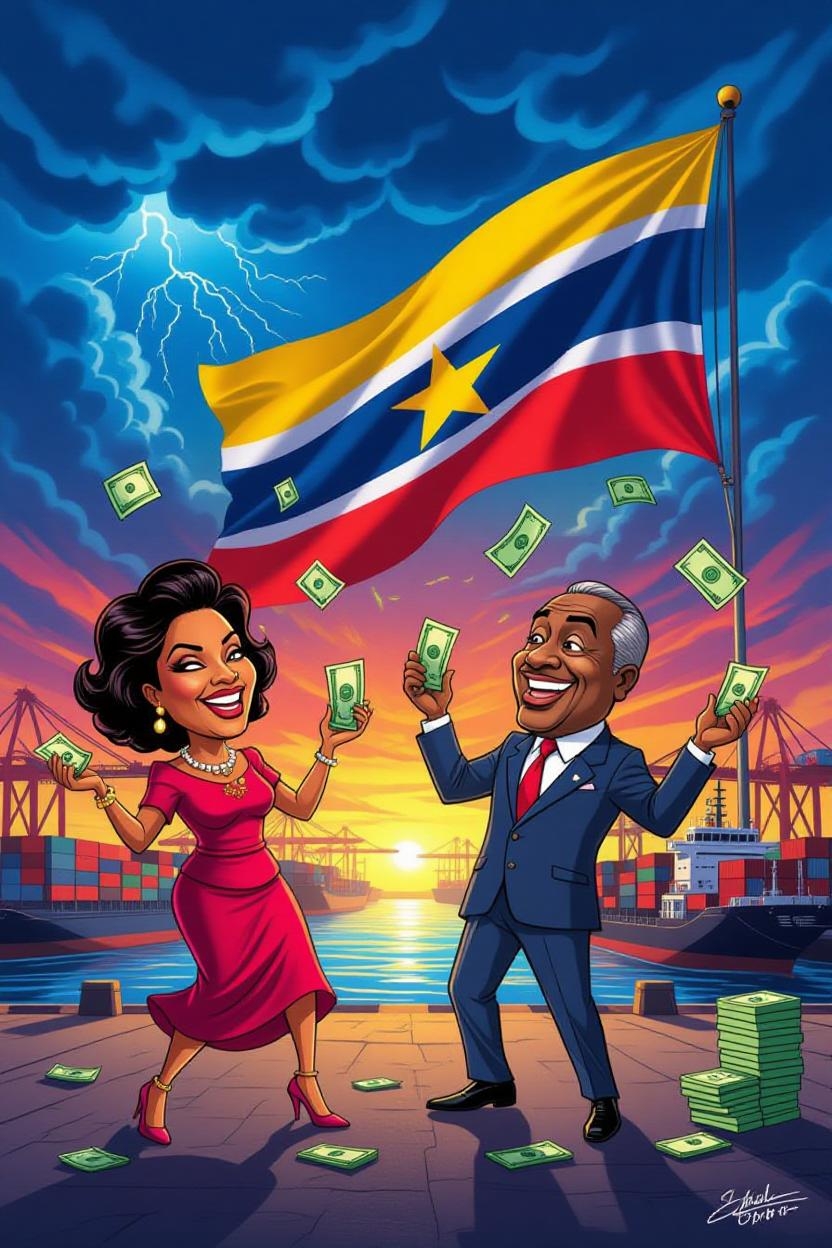
As U.S. warships cast long shadows over the southern Caribbean, Prime Minister Kamla Persad-Bissessar unveiled her government's 2026 budget on October 13. It was a spectacle of political theater—promises of public sector pay hikes, pension protections, and a nod to reopening Petrotrin, all wrapped in the festive garb of campaign rhetoric. But peel back the glossy veneer, and what emerges is not a roadmap for prosperity, but a deliberate psyop designed to lull the people of Trinidad and Tobago into a false sense of security. This budget isn't just optimistic; it's dangerously detached from reality. And nowhere is that detachment more glaring than in its utter failure to address the elephant in the room—or rather, the armada in the Gulf of Paria: the escalating U.S. military activity in our region.
Let's be clear from the jump: this article isn't here to dissect every line item in the $60 billion-plus blueprint. We're not talking about the creeping property tax hikes buried in the fine print, the VAT tweaks that will quietly squeeze the middle class, or the "efficiency measures" that spell layoffs for the vulnerable. Those are the slow poisons the UNC and its cronies hope you'll swallow without choking. No, today we're laser-focused on the budget's most egregious sin of omission—the blind eye it turns to the powder keg of U.S. military buildup that's already reshaping our waters and threatening our very survival.
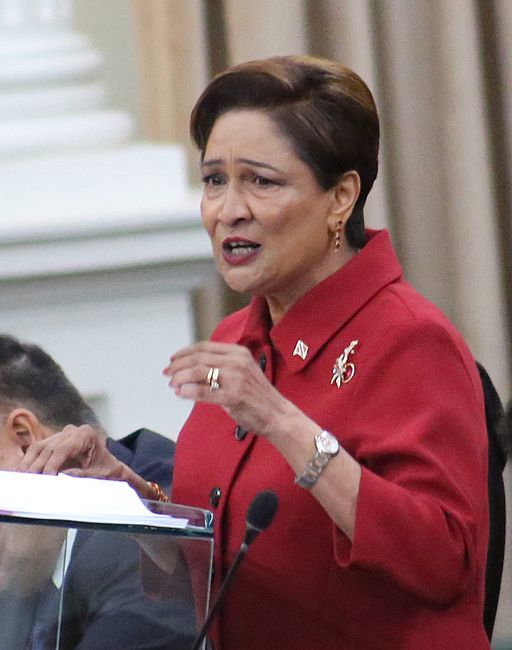
The Guns of August: U.S. Military Shadow Over Trinidad
It started innocently enough, or so the spin goes. In late August 2025, the Trump administration ramped up its naval presence in the southern Caribbean, ostensibly to "combat drug trafficking" and target Latin American cartels labeled as "narcoterrorists." Destroyers, amphibious assault ships, and elite units from the 160th Special Operations Regiment poured into the area, with over 10,000 U.S. troops now stationed across Puerto Rico and the southern isles. nytimes.com Surveillance flights buzz over southern Trinidad, mere miles from our shores, while Navy patrols interdict smuggling routes that have long skirted our coastlines.
But here's the kicker: Kamla's government didn't just watch from the sidelines—they rolled out the red carpet. In a move that reeks of subservience, Persad-Bissessar offered the U.S. full access to Trinidadian territory to "protect Guyana" amid the simmering Guyana-Venezuela border crisis. Venezuelan President Nicolás Maduro fired back, calling it tantamount to a declaration of war and vowing retaliation. Since then, it's been a cascade of escalations: six U.S. strikes on suspected drug vessels in international waters, killing at least 29 people—including, tragically, Trinidadian fishermen caught in the crossfire. chicagotribune.com Maduro's response? Military exercises in Caracas shantytowns and troop movements along the coast, with propaganda blaring about U.S. oil grabs. Even as CARICOM leaders—minus Trinidad—urge restraint and a "zone of peace" in the Caribbean, the U.S. Embassy in Port of Spain issued a stark warning yesterday: Americans should steer clear of U.S. facilities through the holiday weekend due to "heightened threats" linked to the tensions. chicagotribune.com Fishermen in Chaguaramas whisper about spooked seas, where Navy jets drown out the calypso on the radio. And yet, in Kamla's budget speech? Crickets. Not a whisper about contingency funds for disrupted trade, not a penny earmarked for maritime evacuations, not even a token acknowledgment that our import-dependent economy—fueled by ships docking daily with everything from rice to fuel—hangs by a thread in these waters.
This isn't oversight; it's orchestration. By pretending the U.S. armada is just a friendly neighborhood watch, the Persad-Bissessar administration is gaslighting an entire nation. Crime stats might dip 31% thanks to the patrols—narcotics busts down 64%—but at what cost? voz.us The budget paints a picture of "real, people-centered change," but it's a mirage, distracting from the storm clouds gathering just 12 miles north, across from Venezuela's ragged coastline.
If War Breaks Out: The Shipping Nightmare No One's Planning For

Imagine it: tensions snap like a rusted anchor chain. A stray missile, a misidentified vessel, or Maduro's "repel invasion" rhetoric turns hot. Overnight, every cargo ship inbound to Point Lisas or Scarborough grinds to a halt. No more supertankers gliding into the Dragon's Mouth; no more container vessels unloading at Port of Spain. In a region where 90% of our goods—from baby formula to bauxite—come by sea, this isn't hyperbole. It's logistics Armageddon.
Trinidad and Tobago isn't some self-sufficient Eden; we're tethered to global supply chains that snake through these very waters. A single blockade or escalated naval skirmish could spike import costs by 200-300% within weeks, as insurers hike premiums and reroute vessels around the ABC islands. Fuel prices? Through the roof. Food shelves? Bare. And the budget? Silent as a submarined ghost. Where's the strategic reserve buildup? The diversified sourcing mandates? The emergency tariffs to shield consumers from the inevitable price tsunami?
This psyop thrives on normalcy bias—feeding us visions of pay raises and reopened refineries while the real threat multiplies everything from groceries to gasoline. If war starts, it won't be abstract geopolitics; it'll be empty markets and ration lines. Kamla's crew knows this—they greenlit the U.S. access, after all. But admitting it would shatter the illusion of control.
The Regiment's Silent Alarm: A Leader Steps Away
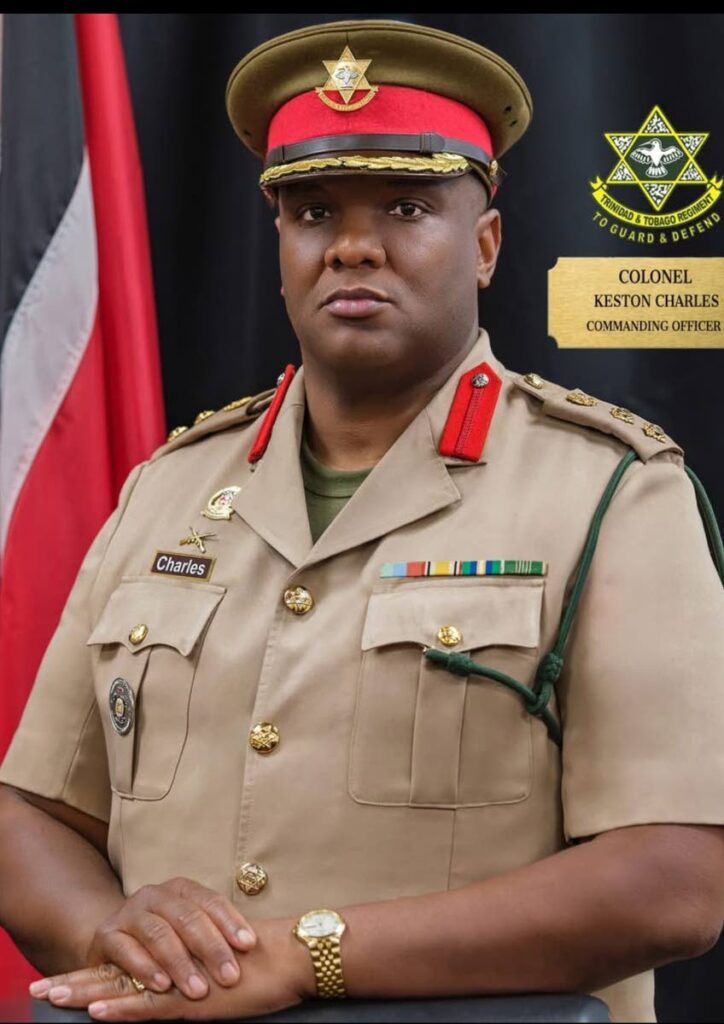
Amid this fog of denial, a clarion call echoes from the barracks. On October 17, Colonel Keston Charles, the commanding officer of the Trinidad and Tobago Regiment, handed over command to Colonel Dwayne Edwards in a ceremony laced with unspoken weight. Charles, the 20th CO of our ground forces, penned a farewell that praised the troops' "unwavering dedication" but stopped short of endorsing the path ahead. In a force that's already stretched thin—3,000 strong, juggling internal security with counter-narcotics and now this regional tinderbox—his exit feels like a resignation in all but name.
The Regiment isn't just boots on the ground; it's our frontline against chaos, from gang wars in Laventille to humanitarian ops post-hurricane. Charles's tenure saw joint exercises like Tradewinds 2025, where U.S. Marines drilled amphibious assaults right here in Chaguaramas. zona-militar.com He knows the score: our 10,000-strong Defence Force is no match for the U.S. juggernaut or Venezuela's ragged but retaliatory ranks. en.wikipedia.org Stepping down now, as U.S. helos chopper between our islands and Caracas? It's a vote of no confidence. Charles isn't fleeing; he's signaling. He's obviously against what's coming—the entanglement in a proxy war we never signed up for, the budget that funds parades but not preparedness. In his absence, will Edwards toe the line, or will the Regiment fracture under the strain?
The Exodus Question: Will Kamla and Her Cronies Stick Around When the Bombs Drop?
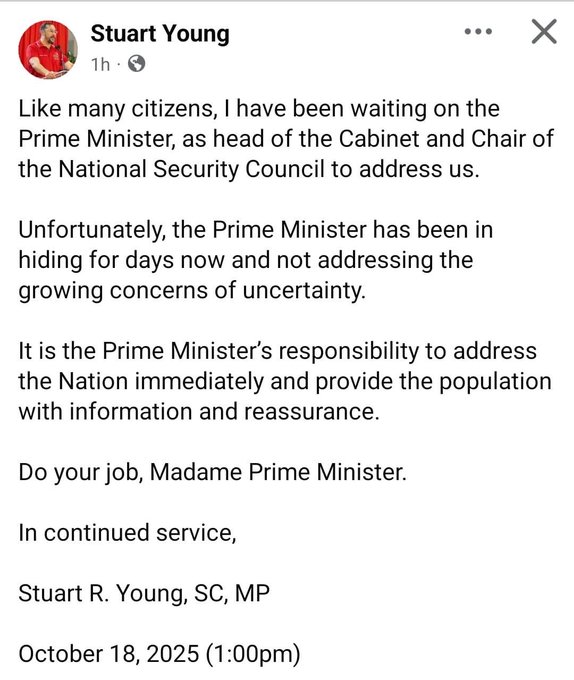
And so we arrive at the gut punch: accountability. Kamla Persad-Bissessar, with her Coalition of Interests riding high on that April landslide, preaches "security, prosperity, stability." facebook.com But when the first plumes rise over the horizon—when sirens wail in Siparia and Scarborough—do you really think she'll be bunkered in the Prime Minister's residence, rallying the nation? Or will she and her inner circle be on the first chartered flight to Miami, passports in hand, leaving the rest of us to the fallout?
History whispers warnings. Leaders who cozy up to superpowers while ignoring the blowback rarely share the foxhole. Kamla's already distanced Trinidad from CARICOM's pleas for peace; she's the lone holdout in a region crying for de-escalation. demerarawaves.com Her budget's a love letter to voters, but it's no shield against shrapnel. If bombs start dropping, I wouldn't bet on her staying. The cronies—the ministers with offshore accounts, the advisors with dual citizenship—they'll scatter like roaches at dawn. And we'll be left holding the empty bag, wondering why no one sounded the alarm.
Trinidad and Tobago deserves better than this scripted slumber. Demand transparency. Push for a supplemental budget that faces the facts: stockpile supplies, fortify alliances beyond Uncle Sam, and get our Defence Force the tools to defend us, not Washington’s whims. The psyop ends when we wake up. Before the ships stop coming for good.
What do you think? Will Kamla's team bunker down or bail? Drop your thoughts in the comments. Stay vigilant, T&T.